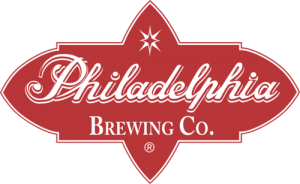Philadelphia Brewing Co., announced last week that it would become the first brewery in the country to accept the controversial cryptocurrency known as Bitcoin for retail and wholesale purchases.
Nancy Barton, the co-owner of Philadelphia Brewing, described the decision to hop on the digital bandwagon as a “no-brainer.”
“It took us all of a night to decide,” she said. “We’ll try it because we really don’t have anything to lose.”
Not familiar with Bitcoin? Essentially, it’s a form decentralized digital currency that is both traded and “mined” using open-source software. The “coins” can be sent to anyone via the Internet with no middleman and no transaction fees. And because the currency is so new, the actual value of Bitcoins can fluctuate drastically. One year ago, a single Bitcoin had an exchange rate of $50. Today, it is valued at approximately $830.
While executives with Philadelphia Brewing said they are excited to begin accepting Bitcoin as a form of payment from its wholesale partners, Barton thinks some won’t be as quick to adopt a new payment system.
“I think it’ll be a while before, wholesale-wise, for our customers get into it,” she said. “I’m sure there will be a few of them that don’t want to do it right away. A lot of our customers are really old school.”
But Jay Diluzio, the beer drinker who introduced Philadelphia Brewing to the idea of accepting Bitcoins said that he is working to convince other area businesses to swap their leather wallets for cyber ones. Diluzio believes it’s the way of the future.
“This is like a beta,” he said. “This is 1993 email.”
Philadelphia Brewing is changing more than just how it gets paid. The brewery is in the midst of increasing production capacity at its 38,000 sq. ft. brewing facility, Barton said. The upgrades should allow Philadelphia Brewing to double its current capacity, something the company butted up against in 2013.
The addition of more space will also allow the company to expand its distribution beyond state borders. Philadelphia Brewing produced 14,000 barrels last year, all of which were sold inside Pennsylvania. However, it will “definitely” add New Jersey to its footprint in 2014 and it is also eyeing the New York and Delaware markets, Barton said.
The brewery’s selection of beers — a year-round lineup consisting of Kenzinger, Walt Wit, Pennsylvania Pale Ale, Newbold IPA, and Schwarzinger — won’t be the only line of products benefitting from an expansion of the facility. Philadelphia Brewing also plans to add to its line of Commonwealth Ciders, which currently consists of three flavors: Traditional Dry, Razzberet Tart Dry, and Gregarious Ginger Dry.
Barton said that the brewery offers a much drier cider compared to most of what’s currently available in the cider space.
“Ours have kind of a niche,” she said.
The brewery has also been toying with the idea of expanding its specialty soda offerings, which are produced by a contract manufacturer, Barton said.
“Specialty sodas seem to be a pretty big deal right now,” she said. “It just kind of makes sense.”
Additionally, Barton said that Philadelphia Brewing owns sizeable warehouse space in Pittsburgh and property across the street from its headquarters that could be utilized for future expansion projects.

